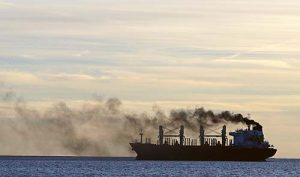The country’s journey towards net zero commences with an alliance of 7 enterprises
Over S$20 million will be injected to revamp Singapore’s coastal delivery system, which includes offshore wireless charging points for ships and electric boats from which drones can take off. This was announced at the Coastal Sustainability Alliance’s launch on 14 March 2022.
Electricity powered vessels
The 7-member alliance will lead the transition of Singapore’s current 1,600 low-tech harbour craft, used to deliver supplies from shore to ships in Singapore’s waters, run on environmentally-friendly fuel, and be more efficient as they are gradually phased out. A network of stationary and mobile electric chargers will be planted along the country’s coast and remodel used batteries from electric cars into modular packs for ships to prevent wastage.
The alliance is made up of Kuok (Singapore) Maritime Group, Agency for Science, Technology and Research (A*Star), GenPlus, Jurong Port Singapore, TCOMS, Sea Forrest and TES. Trials of electric vessels may commence as early as 2024. Tan Thai Yong, Chairman of the alliance’s and Chief Executive of PaxOcean, said the changed ecosystem will lead to a 50 per cent reduction in harbour craft’s carbon emissions by 2030. “We have a clear goal: to build Singapore’s next-generation maritime ecosystem by 2030. We endeavour to build a full suite of wireless electric charging infrastructure networks with shore and floating charging points along our coastline,” he added.
The alliance’s ambition included new vessels compatible with drones used to deliver goods. Some of these vessels could be autonomous and make multiple deliveries, instead of the current time-consuming one-trip- one-delivery system. The consequent reduction of launch boat movement – by about 20 per cent (by 2030) will also lead to less fuel use; part of the push towards more sustainable shipping. Kenneth Lim, Assistant Chief Executive of the Maritime and Port Authority of Singapore’s (MPA) industry department, said the alliance will plug neatly into MPA’s ongoing initiatives.
MPA recentlyannounced a S$300 million, 2050 Maritime Decarbonisation blueprint.One of its aims is the electrification of Singapore’s harbour craft, with the whole fleet to run on electricity /or net zero fuels by 2050. He added: “Given the higher cost of adoption, a viable transition would need to be supported by a diverse suite of green financing options. MPA is working with MAS (Monetary Authority of Singapore) and industry partners to develop Singapore as a green maritime financing hub.”
Second Minister for Trade and Industry Tan See Leng, said the republic is in a decisive shift to make the country that promotes and attracts green economic activities. “Singapore is at an exciting point in our sustainability journey. We must advance on this journey to achieve our ambitious climate targets collectively as a nation, which requires support and participation of all stakeholders across the Government, all businesses, academia as well as households. He added that he looks forward to the results of this collaboration.






